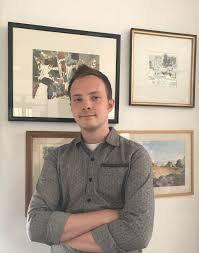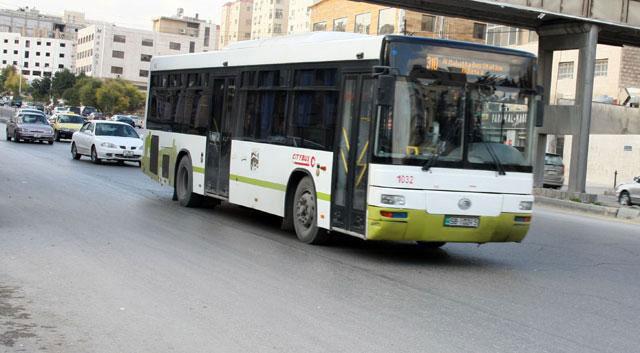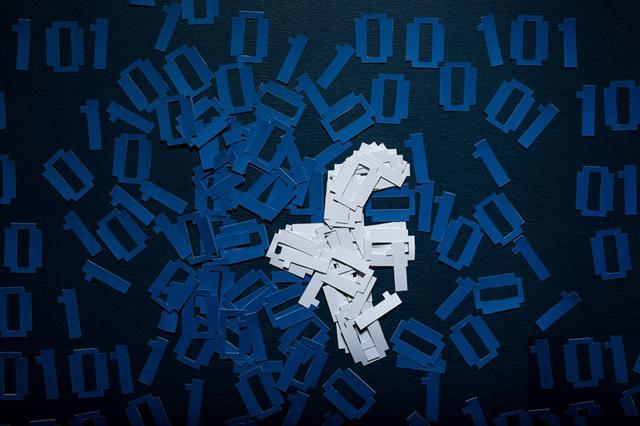You are here
Increased use of technology modifies tribal rules in Jordan — expert
By Saeb Rawashdeh - Jul 06,2017 - Last updated at Jul 06,2017

Geoffrey Hughes
AMMAN — For Geoffrey Hughes, a teaching fellow in the Anthropology Department at the London School of Economics (LSE), “every Jordanian with a smartphone and a passion can become a poet, an artist, a journalist and a publisher”.
Hughes, who is also a fellow at the American Centre of Oriental Research, undertook a project titled “Nation and Agnation: Kinship, Conflict, and Social Control in Contemporary Jordan”.
He became interested in conflict resolution in tribal societies when he saw young people using social media to pursue tribal rivalries they traced back to the time of their forefathers.
“This mix of old and new works against a common idea about ‘backwardness’ and ‘development’, whereby people assume there is a single, correct path to ‘modernity’,” the scholar said, adding that, instead, young people took the developments they liked in terms of technology [the Internet, smartphones, computers], but continued to use some of the organisational forms and the social values of their ancestors.
The technology is not neutral, according to the anthropologist, as people use technology to pursue “preexisting agendas”, but the technology does have an effect on those agendas.
Hughes went on to compare traditional diwan and social networks run by members of tribes: “Compare something like Facebook to something like a diwan or mudafa: there are obvious similarities; it allows people to gather, share stories, plan and decide on a course of action [to promote conflict or to prevent it].”
“There are also differences, though: not anyone can open a diwan, but everyone can open a Facebook account and there is more anonymity online,” he noted.
“You can host many more people through a Facebook page than you can through a diwan,” the anthropologist underlined, noting that the diwan also has rules of discourse, based on turn-taking, that privilege senior male hosts and senior male guests at the expense of junior men and, of course, women.
“The introduction of Facebook would, therefore, seem to undermine the power of the rich and powerful senior men within tribes, even if they begin to invest heavily in developing a Facebook presence — which some prominent senior male tribal leaders are clearly beginning to do,” he underscored.
“My research so far shows that this ‘hollowing out’ of the diwan, in favour of alternative venues for discussion and decision-making like Facebook and Whatsapp, is causing a lot of concern in rural, tribal areas,” said Hughes.
Senior men do not believe tribes and tribal law can really exist without the diwan preserving its central role in the community, while many junior men agree, he emphasised.
“So, even when we are all reading about ‘tribal clashes’ [on the Internet and on our phones, naturally], many people in rural areas do not even consider these conflicts truly tribal, because they are not being organised through the traditionally legitimate channel of the diwan,” the scholar explained.
Tribal people across the Mediterranean region have long placed a high value on social harmony, and the stereotype of “gleefully violent tribesmen” is unfair, he argued.
Hughes said he is also open to the idea that these conflicts are still tribal, but that the nature of tribalism is changing because of technology — and perhaps not for the better.
Regarding the possibility of coexistence between tribalism and the modern, civic state, the expert said: “Yes and no. The concept of a ‘modern, civic state’ is itself often full of internal contradictions, so it shouldn’t surprise us that tribalism can both work hand in hand with a modern, civic state at times, while also contradicting it in other ways. “
“To give one example, I was recently talking to a Jordanian policeman who is taking courses in a ‘modern, civic’ policing method known as ‘community policing’,” Hughes explained, adding that “we were making remarks about how the technical concept of the ‘social ladder’ in community policing encourages the police to identify community leaders and deal indirectly with problematic individuals”, especially young people and the poor.
This is precisely what the police in rural Jordan have been doing for decades when they work with sheikhs and other rural notables to maintain order, the scholar explained
While not offering a definitive judgement on the modern, civic state, he pointed to this aspect of traditional, rural policing as illustrative of its “internal inconsistency”.
Hughes continued, citing the example of “the latest in supposedly progressive policing methodologies in Europe and North America”, which encourages the police to see society not as a collection of independent, individualised citizens, but rather as people with non-civic, often familial communal ties.
This is probably because, virtually everywhere in the world, these non-civic ties exist and remain important in people’s lives, whatever sort of ideology of a “modern, civic state” the government may wish to promote, the anthropologist underscored.
“Proponents of such community policing methodologies assert — not far from what proponents of tribal law suggest — that acknowledging and working with these non-civic ties may promote state legitimacy and keep the peace in a more efficient and more humane fashion than other alternatives.
“So, aspects of tribalism go hand in hand with the modern, civic state, while other aspects contradict it; but this is at least in part because the modern, civic state is an idealised standard that no country seems to be able to fully live up to,” Hughes concluded.
Related Articles
AMMAN — The Jordan Tourism Board (JTB) on Sunday discussed modern and innovative solutions offered by business entrepreneurs and start-up ow
AMMAN — Seventy of the 135 new buses scheduled to start operating by the beginning of 2018 in Amman have arrived in Jordan, Amman’s Mayor Yo
NEW YORK — One of the co-founders of Facebook called on Thursday for the social media behemoth to be broken up, warning that the company’s h



















